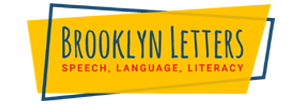A large part of the therapeutic work I do involves teaching young kids how to cope with intense feelings (i.e. anger, fear, etc.). While my training in cognitive behavioral therapy (CBT) gave me the basic skills in teaching relaxation skills, I struggled with figuring out how to modify these skills for very young children. Fortunately, experience (including my own parenting) and a little creativity has helped me to develop ways to make coping skills understandable and developmentally appropriate for this age group. In my last blog, I talked about labeling feelings and provided links for Feelings Charts that parents can incorporate into their daily lives. Colorful charts and graphic representations go a long way in illustrating skills practice for kids. In this entry, I will talk more about specific coping skills such as deep breathing and progressive muscle relaxation.
Deep Breathing: During stressful moments, most adults have learned that taking deep breaths can help us relax and move forward. But, how does one explain inhale through your nose, fill your diaphragm with your breath, and exhale through your mouth to a 4 year old Concrete visual cues derived from everyday experiences can help clarify the steps in this task. For example, at my daughter's preschool, she learned how to perform deep breathing with this neat and simple description: Smell the roses and blow out the candles. In other words deep breathing can be taught by asking a child to breathe in deeply like you re smelling a rose, then blow out hard like you re blowing out the candles on a birthday cake. Smelling roses and blowing out candles are common experiences that children associate with pleasant events and positive emotions. By using the above analogy, you can accomplish two purposes: teaching a valuable relaxation skill and helping them associate the skill with a positive memory. I've learned that the latter (drawing on positive memories) serves as a precursor for a more complex skill used later in cognitive behavioral therapy called guided visualization. To facilitate consistent practice at home, I usually give parents a colorful chart that can be hung on the fridge at home or above a child's bed to serve as a reminder to practice skills on a regular basis. Below are some examples of graphics that can be cut and pasted from Clip Art onto a chart for home use.
Progressive Muscle Relaxation (PMR): This skill has been modified for use with children by experts in the field of CBT for children. This skill involves practice in tensing and relaxing muscles during stressful moments. One learns how to tense and relax one body part, and then gradually adds different body parts in succession starting with the head and working all the way down to the toes. As with other relaxation skills, children learn these skills best when they can draw from concrete, everyday experiences. With PMR, children are taught to make their limbs look like a favorite food pasta! To tense, kids pretend their limbs are like raw spaghetti and to relax they pretend their limbs are like cooked spaghetti. Another variation uses the imagery of toys such making the limbs look like a rag doll, then making them look like Barbie or a toy soldier. In therapy, a clinician will demonstrate and practice using all of the body parts and coach a child in proper form in a fun and entertaining way. At home, parents can focus on one body part such as the hands and arms as these are body parts most used on a day-to-day basis. As with other coping skills, colorful age-appropriate charts can be made and hung in a common area to help kids and parents remember to PMR at home and anywhere outside of the home when intense feelings are experienced.
Annette is a licensed clinical psychologist. She has a private practice in Park Slope and works with children with developmental delays and treats children/adolescents suffering from traumatic stress, depression, anxiety and related disorders. She incorporates cognitive-behavioral interventions with diverse clinical populations. She offers individual psychotherapy that focuses on building a child's existing strengths and developing new ways of coping with difficult situations. She can be reached at: [email protected] or by phone at 917-519-3082.
Craig Selinger
Latest posts by Craig Selinger (see all)
- Private-Pay NYC SETSS: Special Education Teacher Support Services - June 29, 2022
- 7 Do’s and Dont’s of Teaching Self-Control to Young Children - June 11, 2022
- 8 Tips to Help Parents Practice Positive Parenting - June 11, 2022



